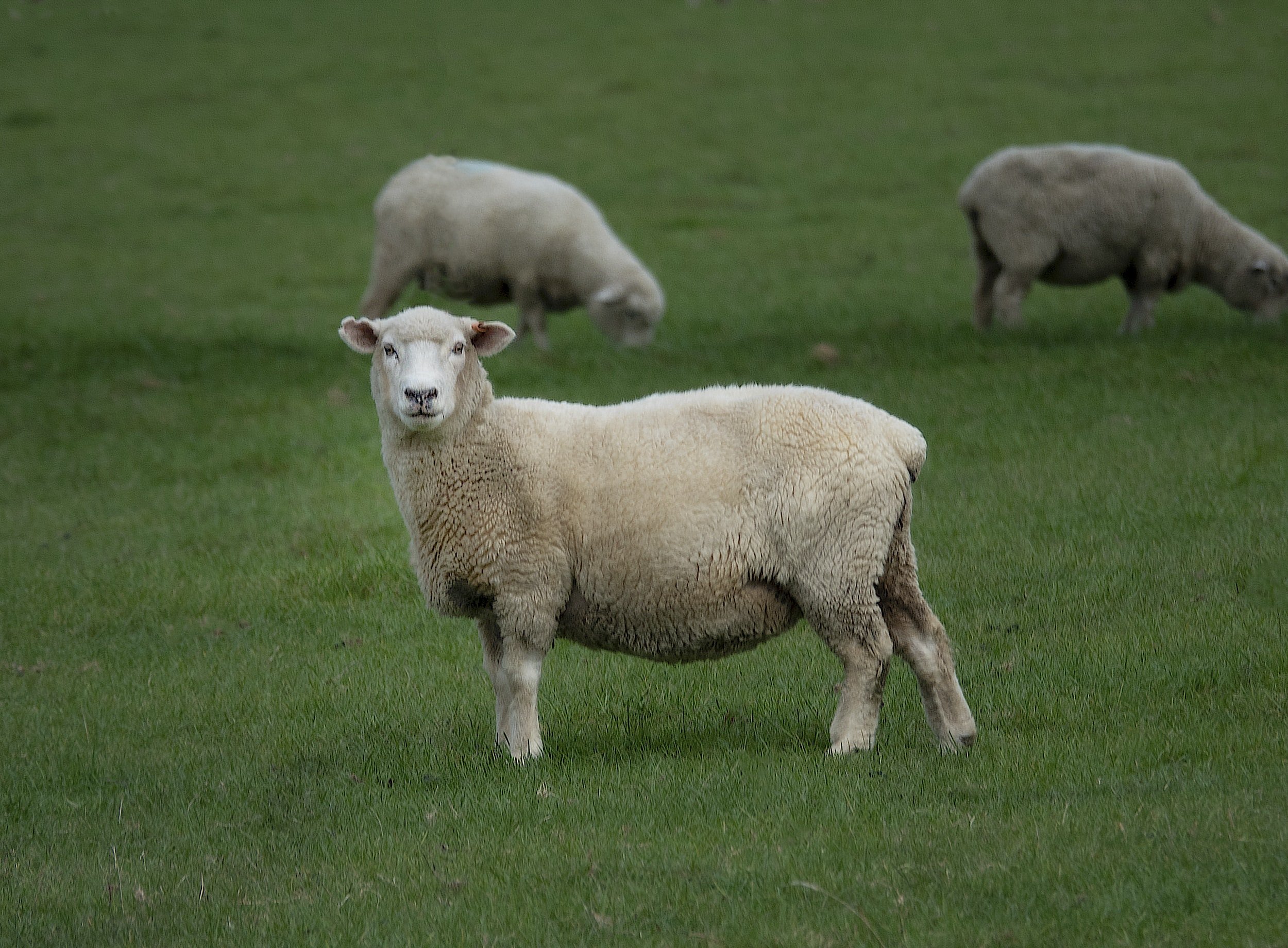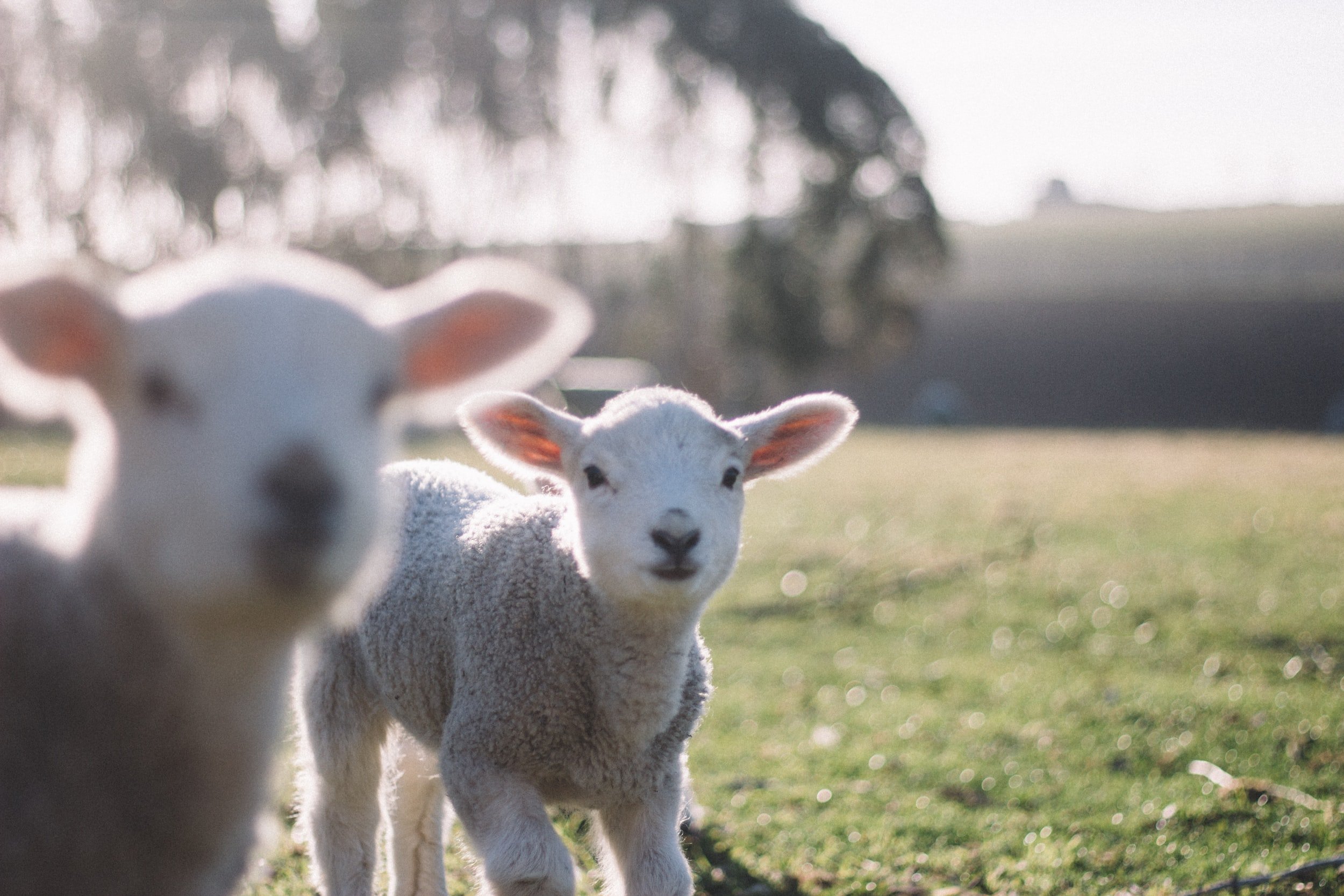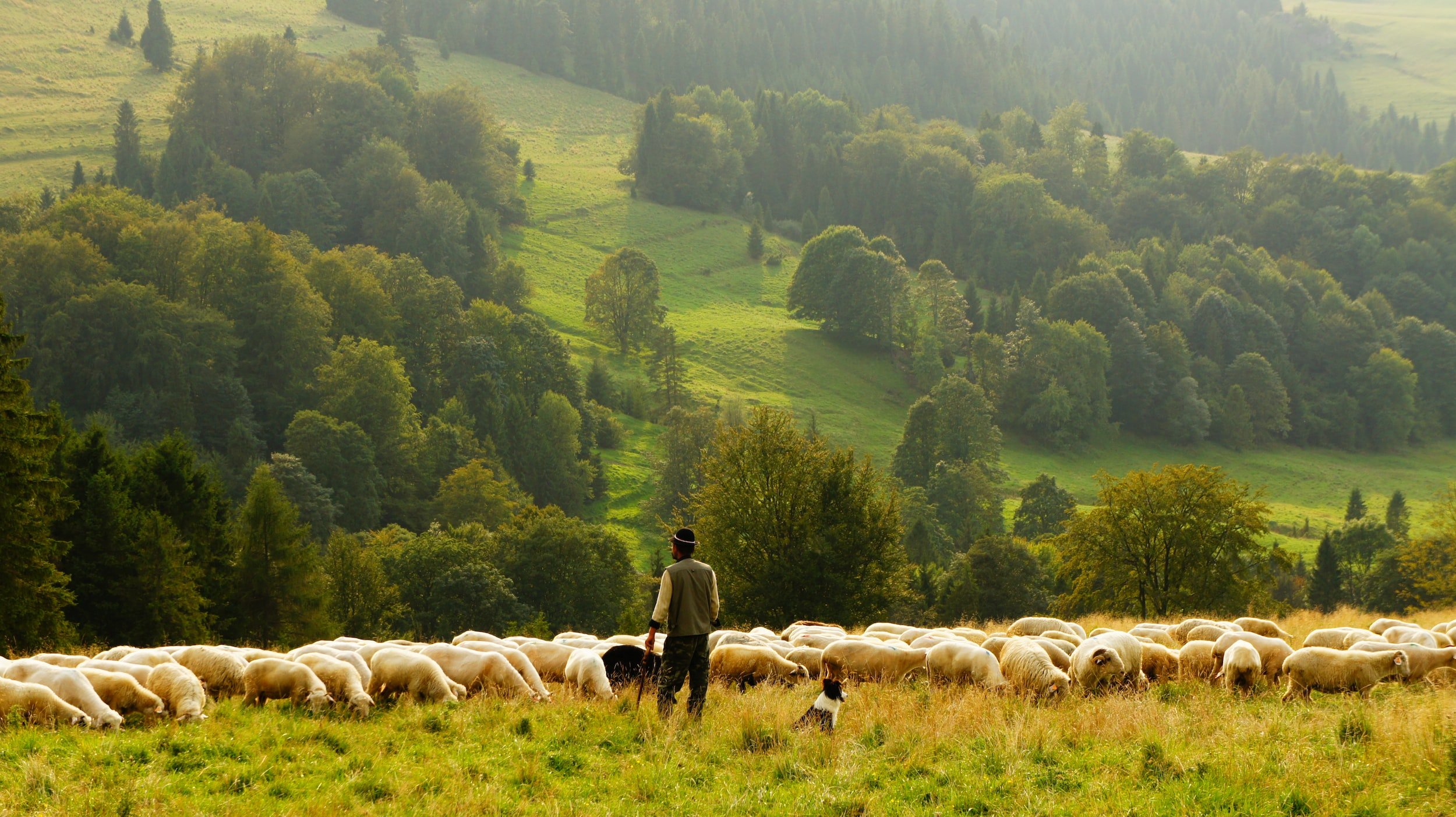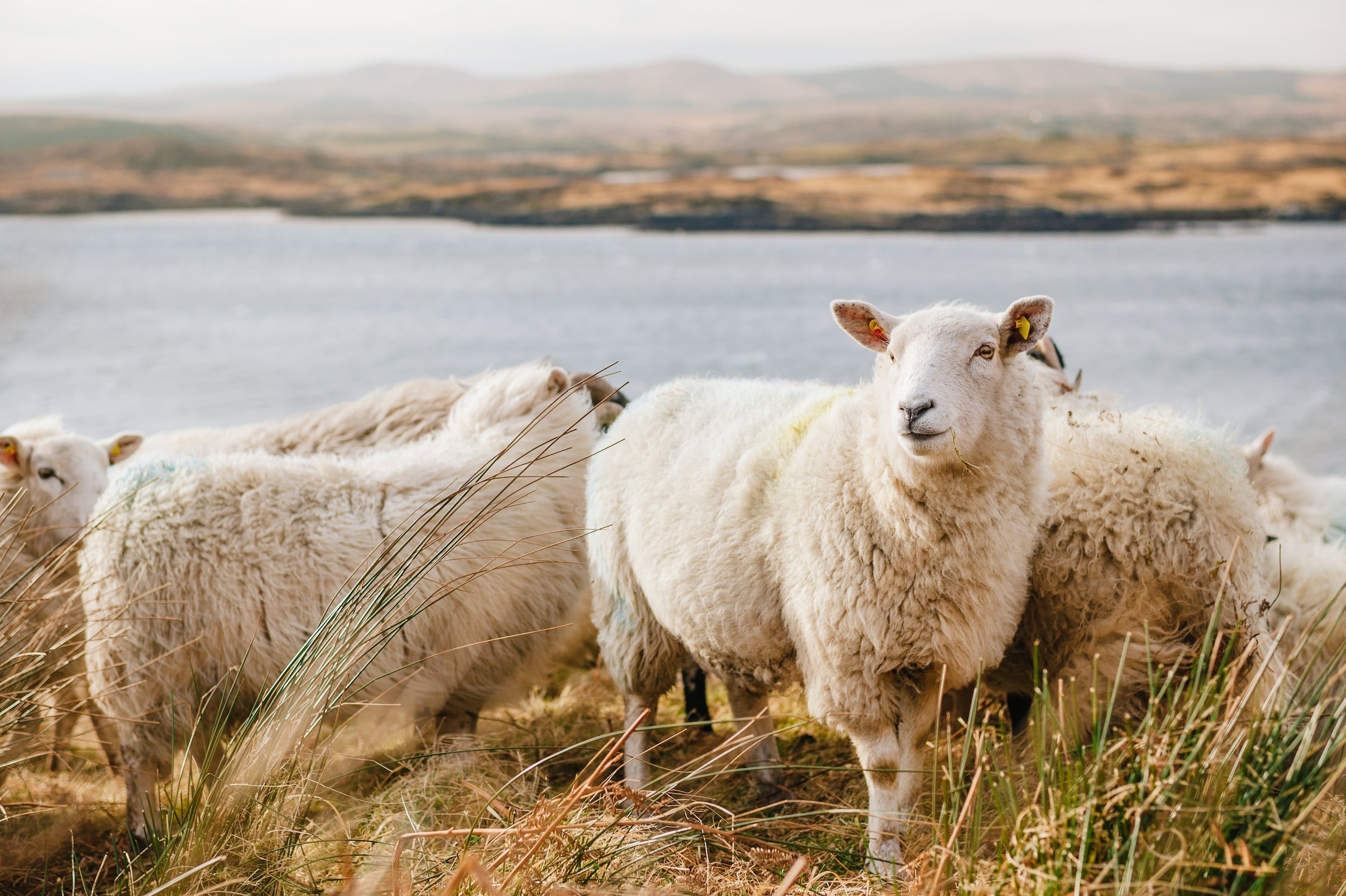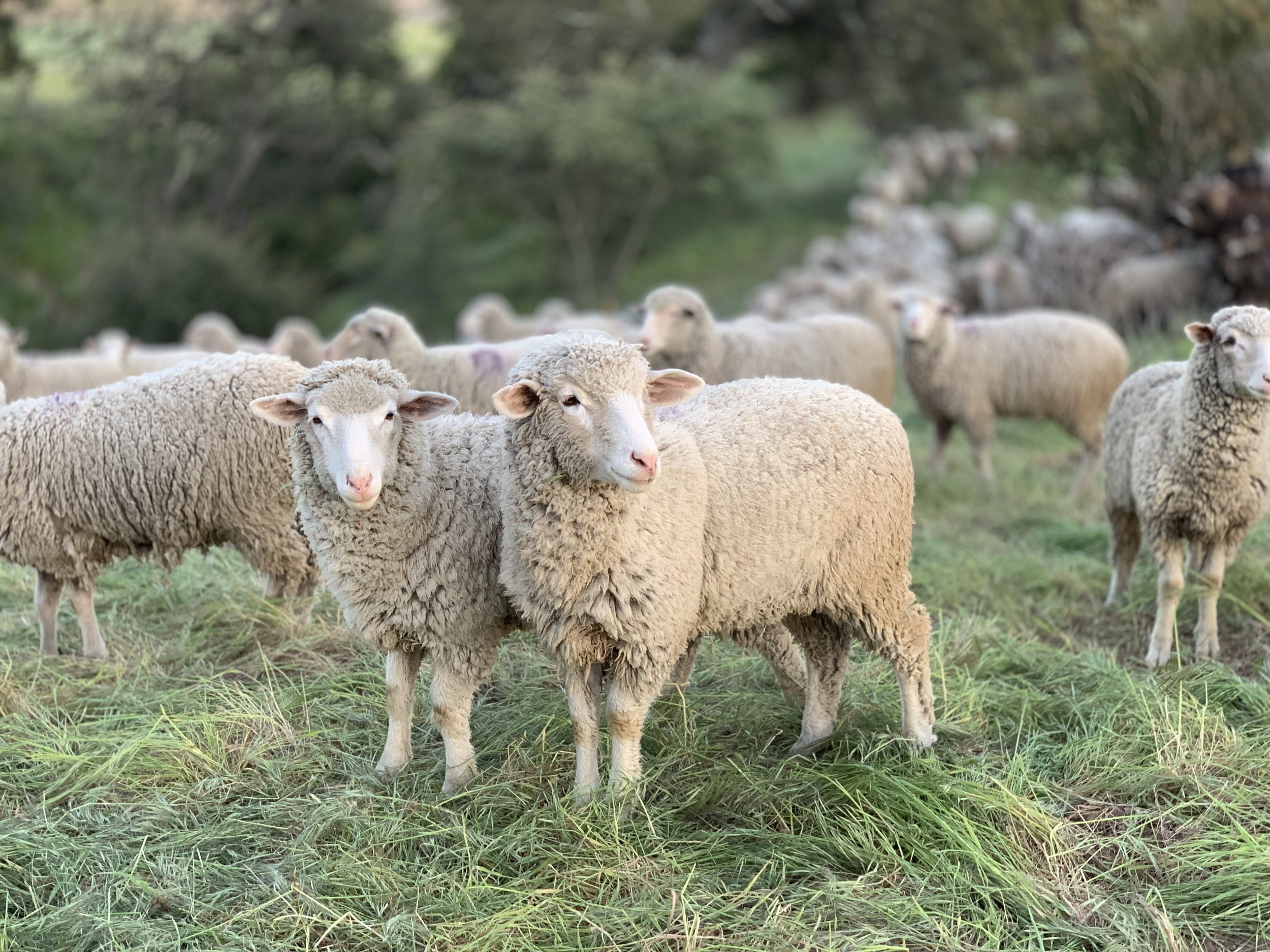What is Bottle Jaw - and How to Prevent It
As a sheep owner, I have always been hypersensitive to the dangers that internal parasites can present to a flock.
Not only can parasites cause severe dehydration and malnutrition, but they can cause a whole host of other ancillary problems as well.
One of these is bottle jaw.
Also referred to as edema, this condition is no laughing matter. Often, once it has appeared, there’s nothing you can do to stop it.
After a brief encounter with bottle jaw on our own farm the first time we raised sheep, we were able to quickly rectify the situation - luckily for us, and for our sheep.
Here’s what you need to know - oh, and before I forget, here’s my legal stuff - I’m not a vet, and this advice is not meant to be taken in the place of a veterinarian’s consultation. If you are seriously concerned about your animals, please, please, please - consult a vet.
**J&R Pierce Family Farm is a participant in the Amazon Services LLC Associates Program, an affiliate advertising program designed to allow sites to earn advertising fees by linking to products on Amazon. I often link to Amazon when recommending certain products, and if you choose to purchase, I may earn a small percentage of the sale. It costs you nothing extra, and all recommended products are ones that I personally vouch for. **
What Does Bottle Jaw Indicate?
Bottle jaw is simply swelling in the lower jawbone area of a sheep or goat. Typically, it indicates anemia caused by heavy parasite load (more on this below) but can also be a symptom of other issues (less common) like:
Coccidia
Johne’s disease
Trauma
…and so on. Here is a video to give you an idea of what bottle jaw looks like in sheep:
What is Bottle Jaw?
Bottle jaw is a condition of edema beneath the chin of a sheep or goat. What is edema, you may ask?
It’s swelling.
Many people confuse bottle jaw with some kind of infection - it is not an infection and cannot be drained. Try to drain it, and you aren’t going to create much of a difference - the fluid will run clear.
Bottle jaw in itself is not a disease, but a symptom of an underlying disease - anemia - and problem - parasites.
What Can Cause Bottle Jaw in Sheep and Goats?
Bottle jaw can be caused by several issues, but nine times out of ten (probably even more than that in sheep), it is caused by severe anemia.
What’s the most common cause of anemia in sheep?
The infamous barber pole worm.
If your goat or sheep has bottle jaw, you need to act immediately. Bottle jaw is one of the last symptoms of a severe barber pole infestation before it becomes life-threatening.
In fact, many farmers who notice bottle jaw notice it too late, resulting in the loss of their animal.
It should also be noted that bottle jaw can be caused by either copper deficiency (in goats) or copper toxicity (in sheep). Sheep cannot eat very much copper - so if you have sheep, check the feed to make sure you aren’t feeding an all-purpose mixture that is designed to be fed to goats.
The reverse of that is true if you are working with goats. Also with goats, it’s important that you check the levels of copper in your soil. Sometimes there are other minerals in the soil that can prevent copper from being used properly by your goats.
Why Is Bottle Jaw a Problem?
In our sheep, we were lucky enough that the bottle jaw never became advanced enough to cause any debilitating problems in our shape.
However, it was a signal that something was seriously wrong in the flock.
With all internal parasites, but especially the nefarious barber pole worm, infestation often goes unnoticed until it is too late. We were lucky - and I say that we were lucky because the bottle jaw alerted us that something was going on.
Bottle jaw can cause problems down the road though, even when you don’t take into consideration the issues caused by anemia.
This disease results when the parasites draw so much blood from your sheep that they are severely anemic. The watered-down blood lacks red blood cells the sheep need, so they have trouble getting oxygen to their tissues. The fluid of the blood leaks out beneath the skin in a form of edema. As your sheep lower their heads, the fluid pools under the jaw.
Left untreated, bottle jaw itself can cause problems as it makes it more difficult for your sheep to open their mouths to eat. It can also cause eventual death, as sheep who are severely anemic will essentially bleed the sheep to death.
How to Treat Bottle Jaw
When we realized our sheep (three of them) had bottle jaw, we instantly turned to worry, and then to Dr. Google, to try to figure out how to treat it.
Unfortunately, there is no “cure” for bottle jaw.
In order to treat bottle jaw, you need to treat the underlying condition - in most cases, the anemia.
Start by making sure your animals have access to plenty of nutritious, animal-specific feed. While sheep do not necessarily need grain to survive and be healthy, it can help to supplement their diet of hay and forage with a sheep-specific feed. This will give them a bit of a boost in the form of vitamins and minerals.
Then you need to make sure they are guarded against parasites. I am a big proponent of avoiding chemicals whenever necessary - but when we were up against the barber pole worm, we did have to dose with a dewormer. This is the first treatment you should administer to your sheep, starting immediately when the bottle jaw appears and then again one week later.
You can use just about any pour-on drench but keep in mind that there are some strains of the barber pole worm that are resistant to dewormers in the macrocyclic lactone class (such as Ivomec and all of its generics, like Cydectin). We used Prohibit and had good results but it’s important that you don’t rely on chemical treatment, as it does not take very long for the bugs to become resistant.
Keep in mind that the bottle jaw will not resolve until you treat the anemia. Killing the parasites will help prevent the likelihood of the anemia worsening, but it won’t reverse it.
Treating anemia is very difficult, however, and requires a great deal of vigilance. We tried everything, it seemed, before we finally found our “miracle cure” that I’ll share with you today.
I call it the “Sheepo Bloody Mary Mixture”. You can find the full recipe here but I'll give you a quick run-down of what's in it below.
Here are the ingredients:
Rooster Booster B12 Supplement: This replaces crucial vitamins and minerals (particularly vitamin B, which helps prevent infections).
Blackstrap Molasses: You HAVE to use blackstrap and not any other kind of molasses. It contains iron, which your sheep need to reverse the anemia.
Garlic: Garlic is a great natural dewormer and can help keep the parasites away while your sheep heal themselves. I used minced garlic, but I believe any kind would work.
Apple Cider Vinegar: Use apple cider vinegar, preferably with the Mother. This will boost the immune system of your sheep and also fight parasites. ACV can prevent other diseases in sheep, too, like Twin Lamb Disease.
As I said, give this to your sheep orally, in a drench gun, at least once a day. Do this for at least one week. You will begin to notice a difference, but it will be slow progress - just be patient.
Now that you’ve adopted a good treatment plan, move the sheep. Immediately. Get them to a fresh pasture where they won’t be contaminating themselves. Ideally, your sheep should be moved to a pasture that has not had sheep or goats on it for at least six months.
Preventing Bottle Jaw
Check your animals regularly for signs of anemia, which is the most common symptom of parasite infestation.
The FAMACHA chart can help you determine quickly whether your animals need to be dewormed. Using this scale is a great way to prevent unnecessary dosing of dewormers.
Essentially, this chart involves looking at the eyelids of your sheep to determine their color. A very pale eyelid indicates the need to deworm immediately, while a darker red indicates a healthy animal that does not need to be dewormed.
Practicing good pasture rotation is also important. This will prevent parasites in the first place. So will following a good deworming schedule (regardless of whether you use natural or chemical methods).
Have Faith and Patience
Unfortunately, bottle jaw is not something that will clear up quickly on its own. You will need to treat your sheep heavily for several weeks before you notice any difference.
That being said, an ounce of prevention is worth a pound of cure when it comes to bottle jaw. Barber pole, or Haemonchus contortus, is incredibly deadly. It can thrive in a sheep’s stomach by the thousands! It often kills seemingly healthy sheep. Scours, which are usually a telltale sign of a problem in a flock, are not present with a barber pole worm infestation.
So remember - deworm your flock regularly. And try to interact with them every day so that you can stay on top of their health. With any luck, bottle jaw will be something that you never need to deal with!
Have you ever dealt with bottle jaw or other issues related to parasites on your farm? Let me know in the comments!
Want to learn more about farming? Be sure to check out these featured articles!
Subscribe to our email newsletter for regular tips and tricks on homesteading and farming – wherever you are. You can also follow us on Instagram (@jrpiercefamilyfarm) and Pinterest (J&R Pierce Family Farm) for frequent updates. Happy homesteading!


